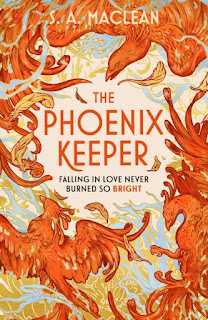 |
Aila, the main character, struggles with her life-long anxiety around strangers and large groups. She is an expert in her field, devoted to saving the lives of endangered phoenixes through a breeding program at the San Tamculo zoo. This city strongly resembles San Francisco and the environment seems much like our own, with smartphones and social media like 'Griffingram'. The zoo itself is described vividly and we get a clear picture of tourist crowds, night atmosphere and the animals' habitats and individual personalities.
Aila's best friend is Tanya, committed and brave. Tanya has her own goal: a volunteering program to assist the zoo. We get to experience the strong friendship between Aila and Tanya, and though their amusing, cheeky interactions can see how much they genuinely care about each other. However, Aila's single-minded obsession with phoenixes can be a weakness, and she must re-learn to pay attention to Tanya's need for help.
Spoiler warning
Luciana is another zookeeper who seems eerily perfect, and is a person Aila has had a long dislike for because of a past misunderstanding. We find out eventually that Luciana conceals a vulnerability when she must deal with the loss of her own creature, a griffin. By gradually co-operating with Aila, we see her barriers break down.
Then there's an 'enemies-to-lovers' trope as Aila and Luciana's difficulties are reconciled, and through this fresh understanding a romance develops. And another tried-and-true plot element appears later when a 'dark horse' character betrays Aila in a plot against her precious animals. While there's nothing wrong with all this, they're hardly unexpected events when they eventually occur.
The final chase sequence, however, kept me in genuine suspense and was a great way to finish off the book. As was Aila's journey to finding love and personal freedom, with her successes in the faces of of her zoo colleagues, superiors and even a large audience.
Rating: 4 stars (out of 5)
⭐⭐⭐⭐Thanks to Hatchett Book Group & Netgalley for an ARC of this book.



